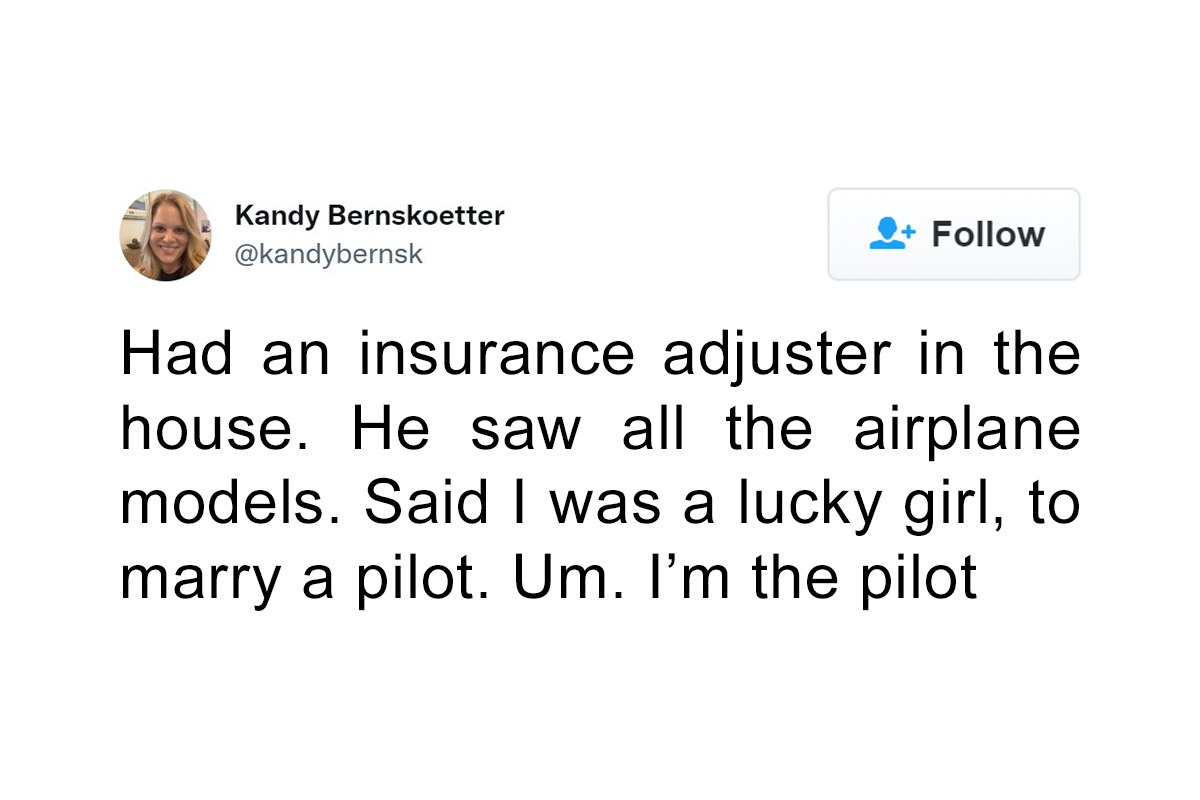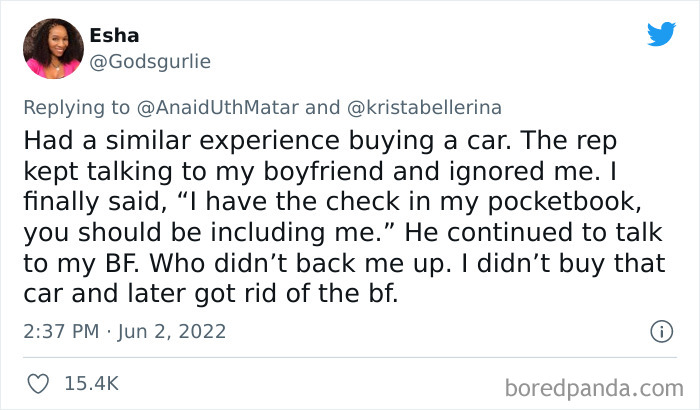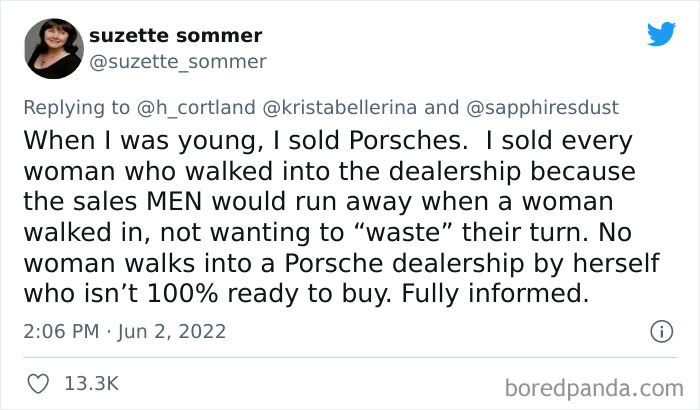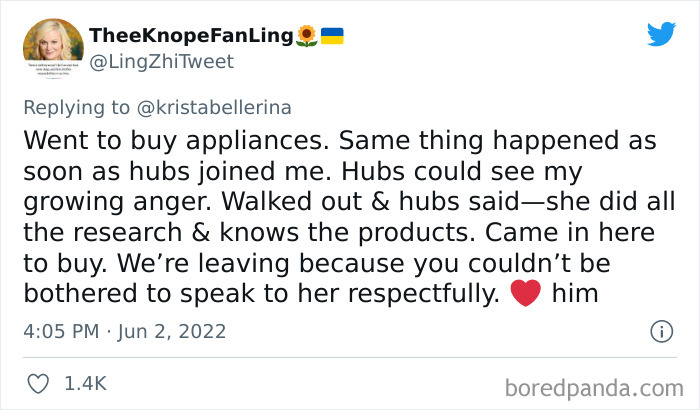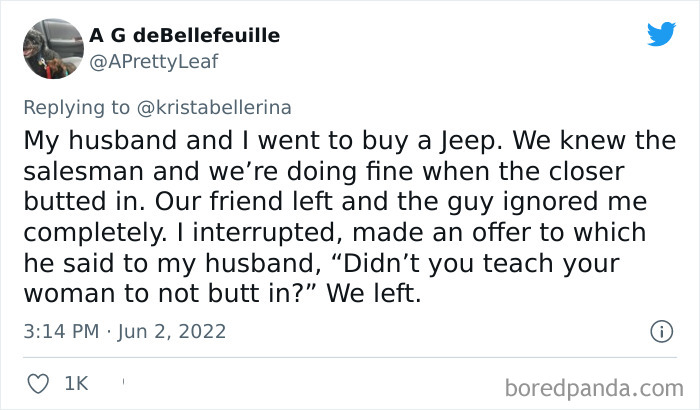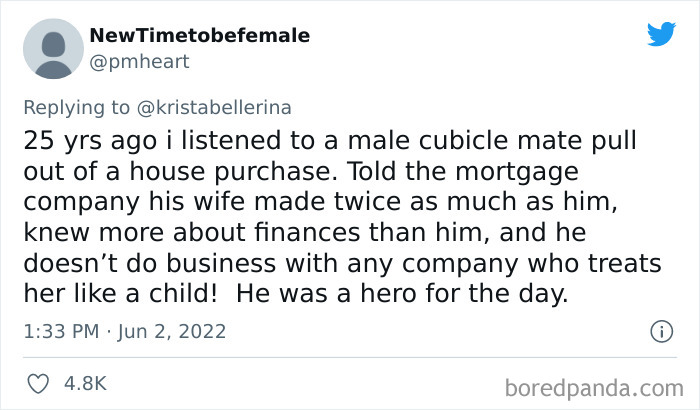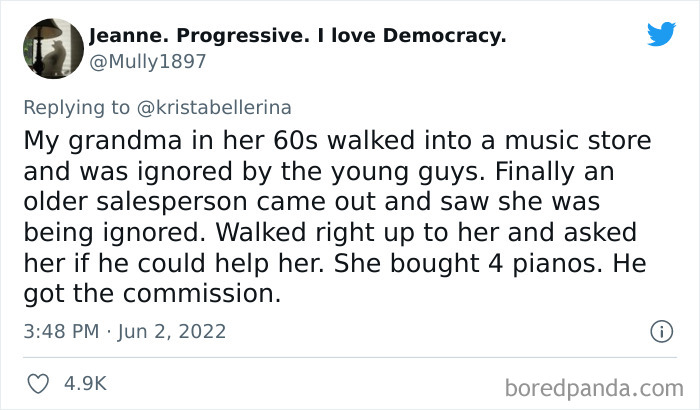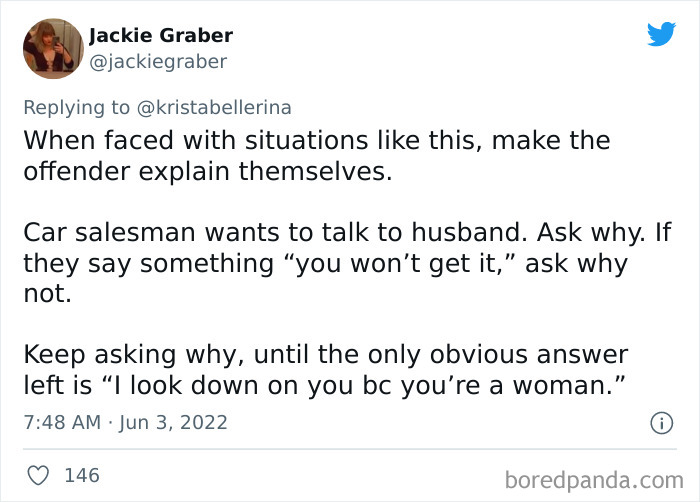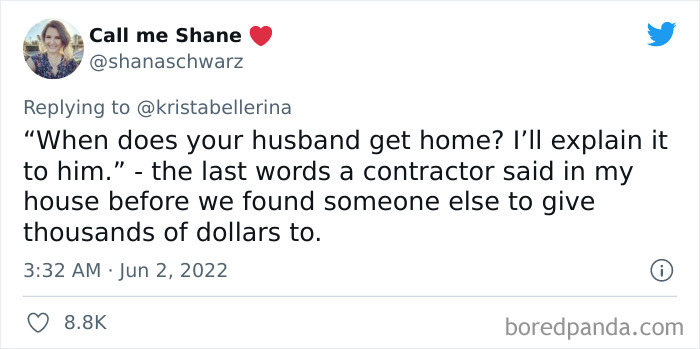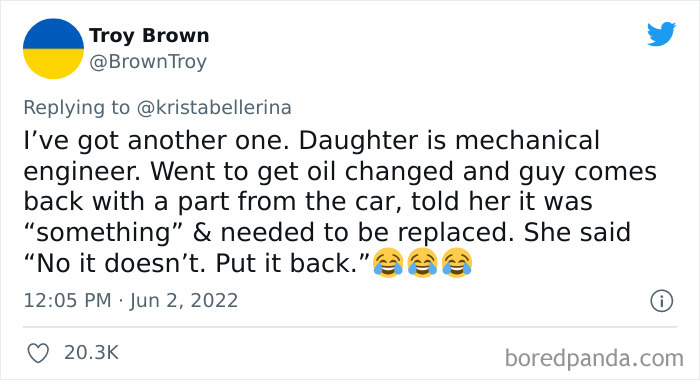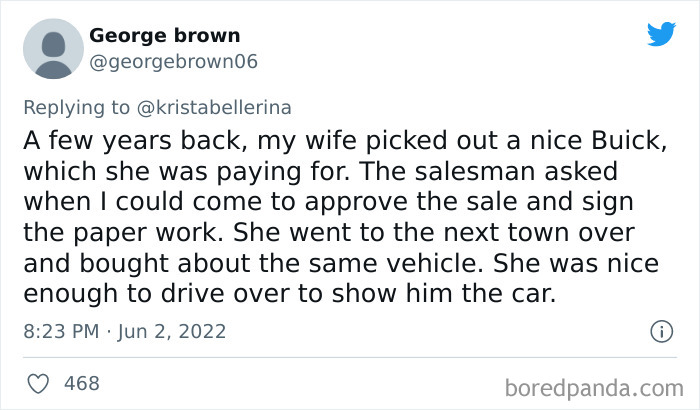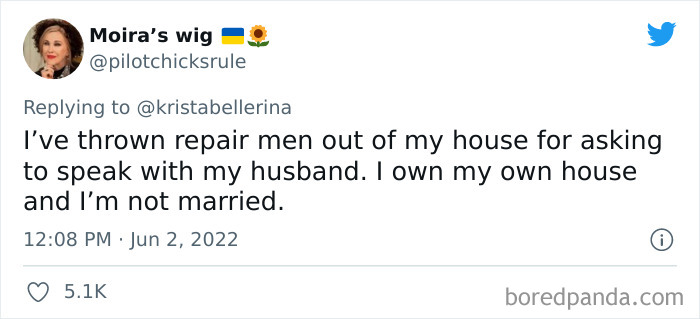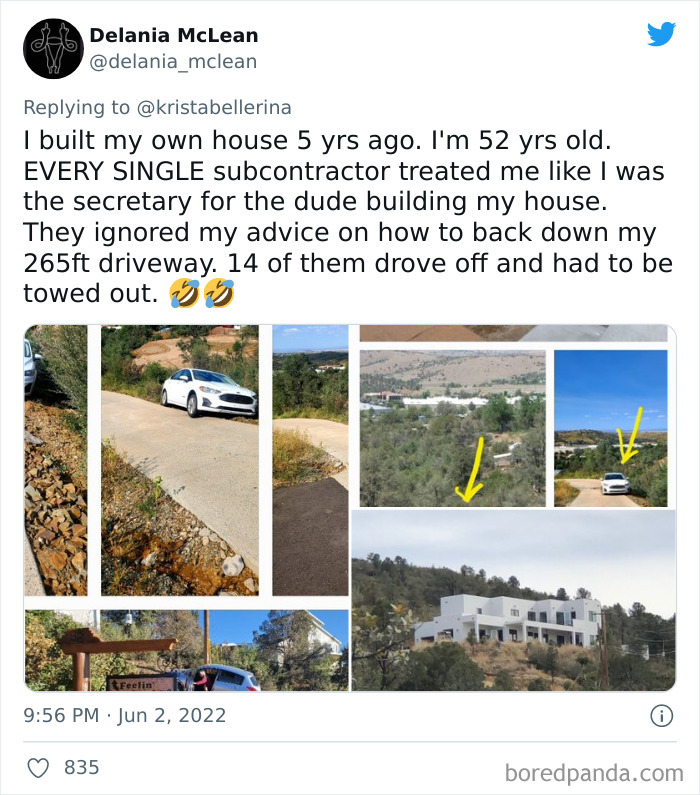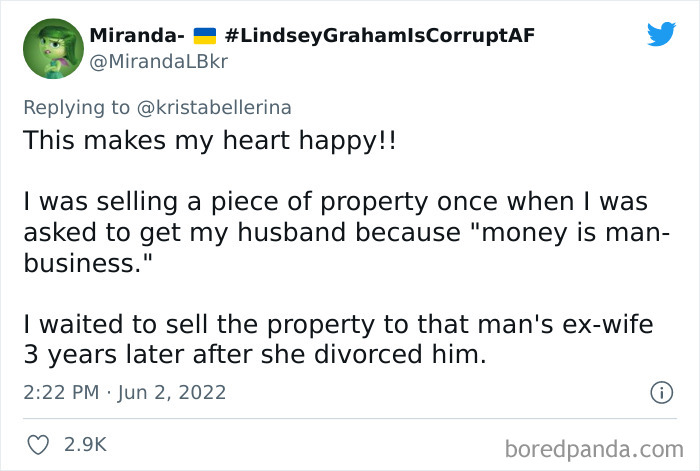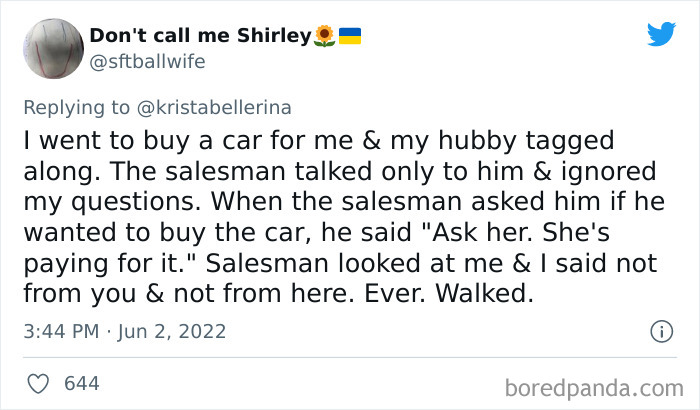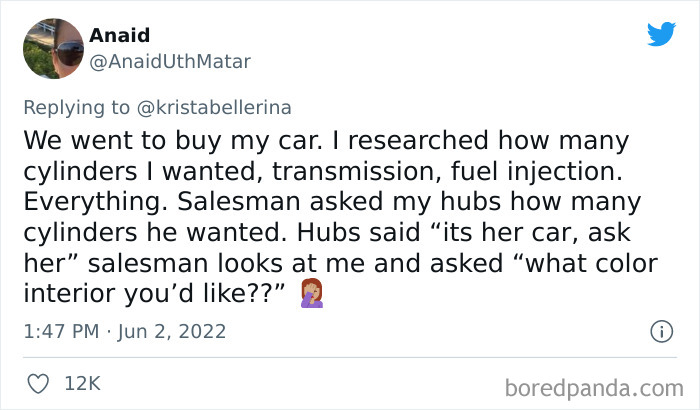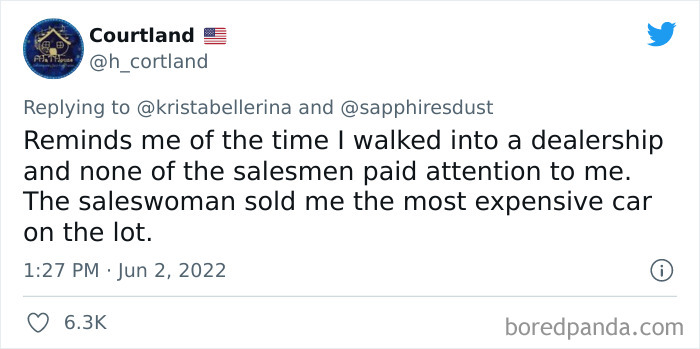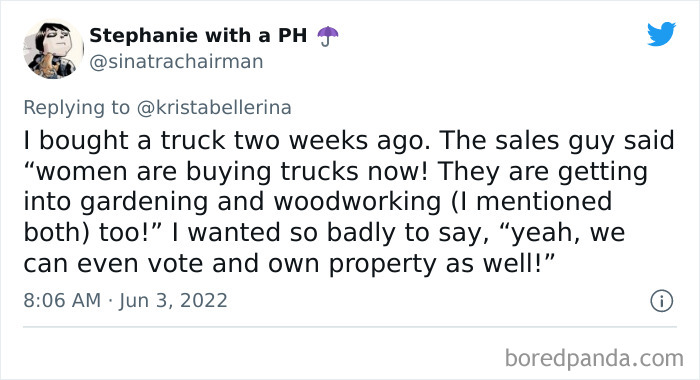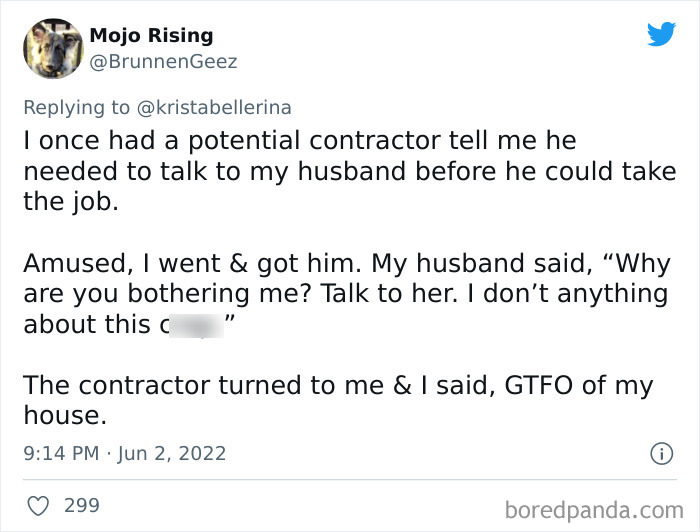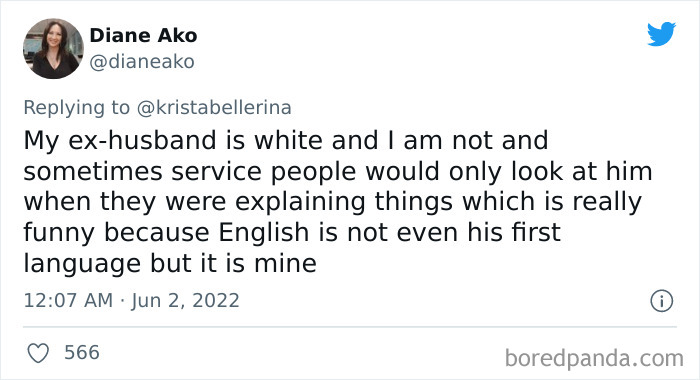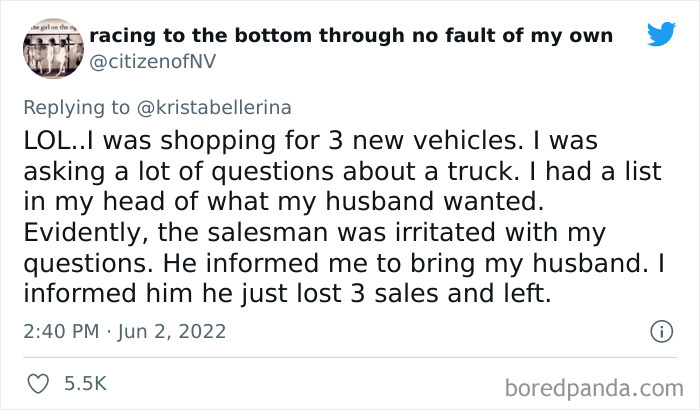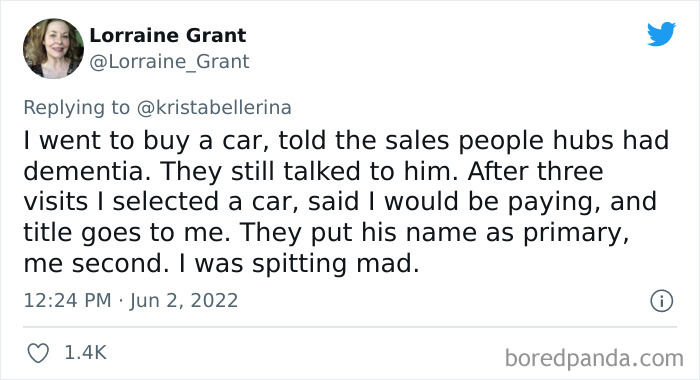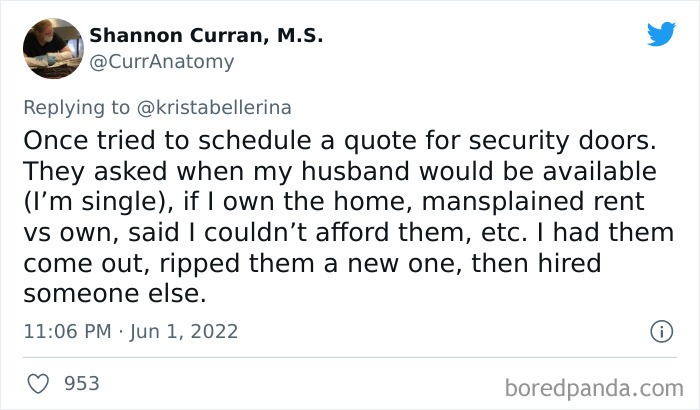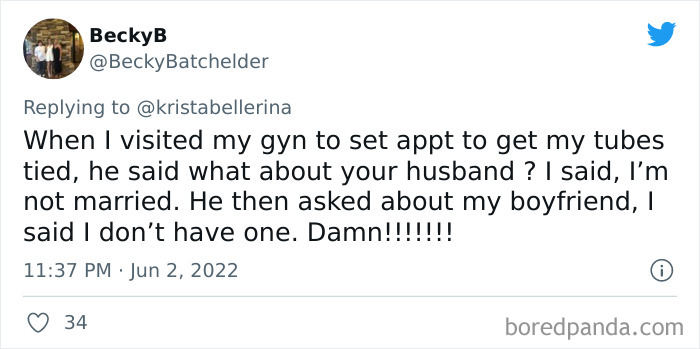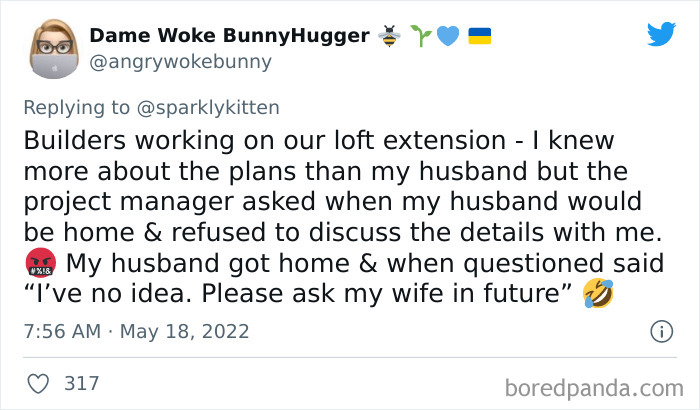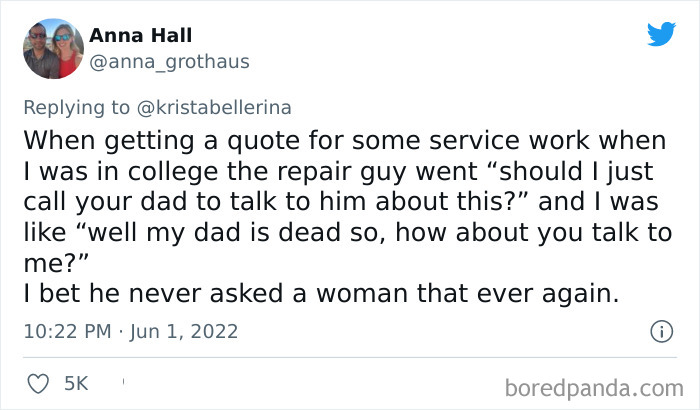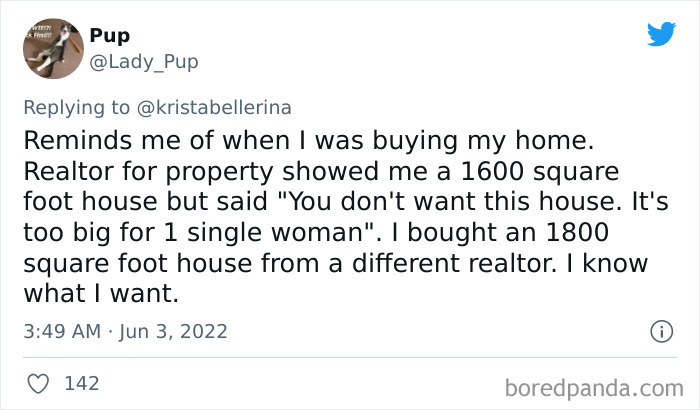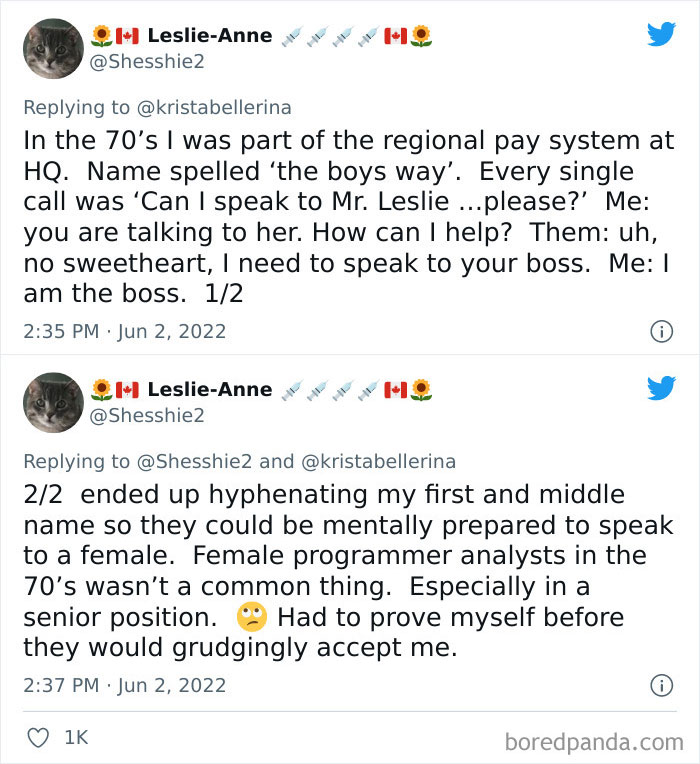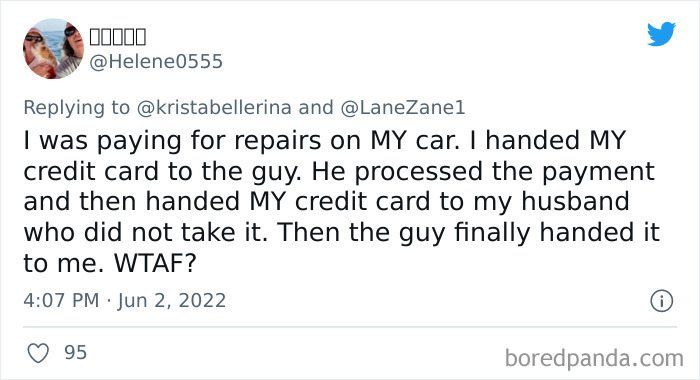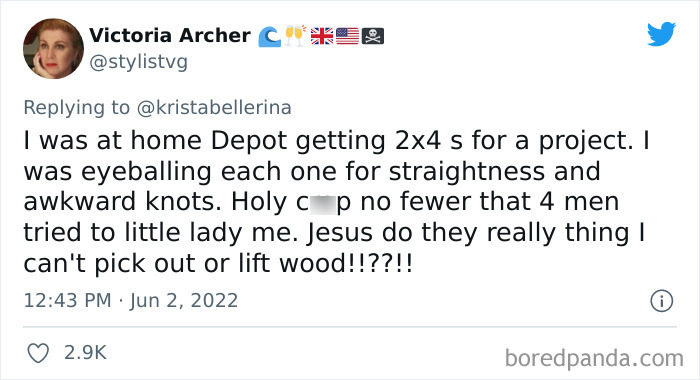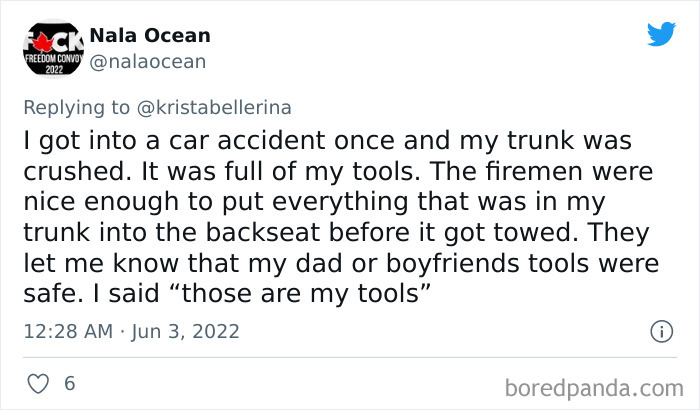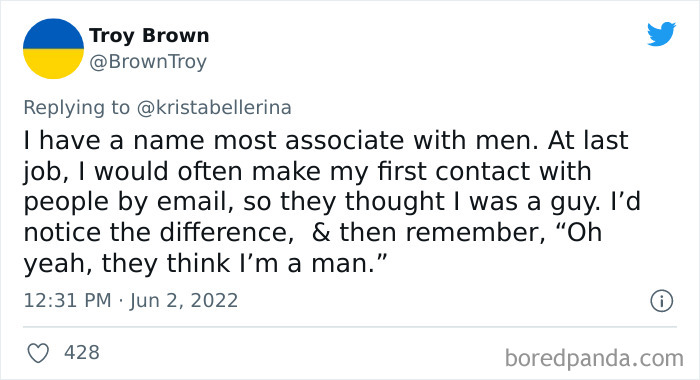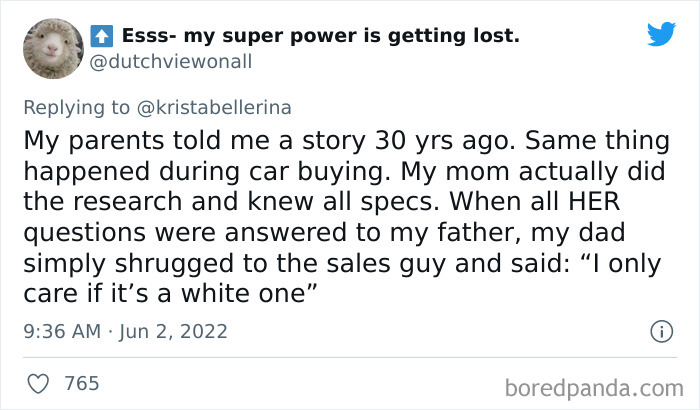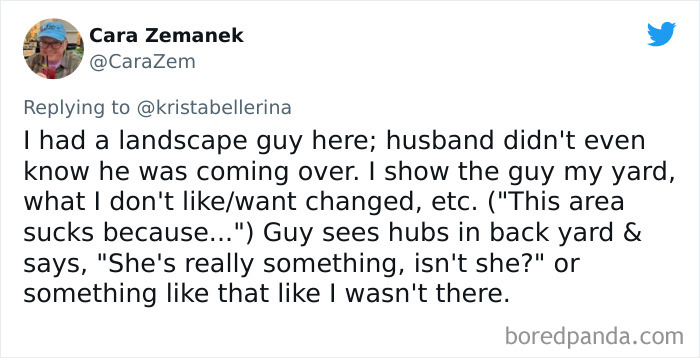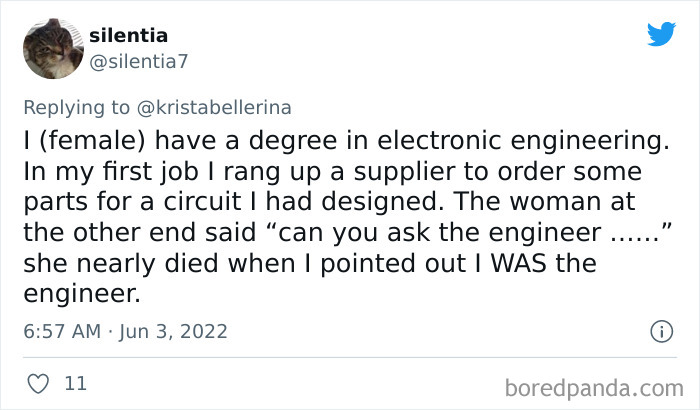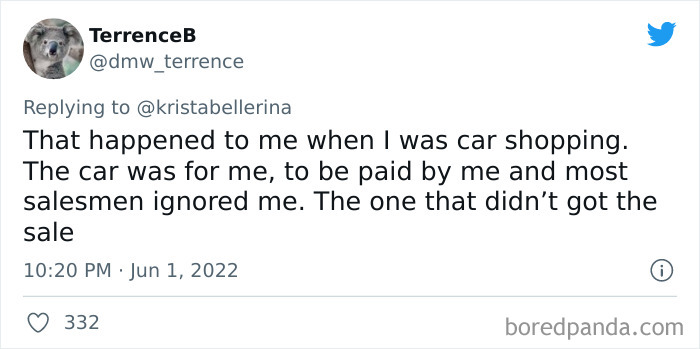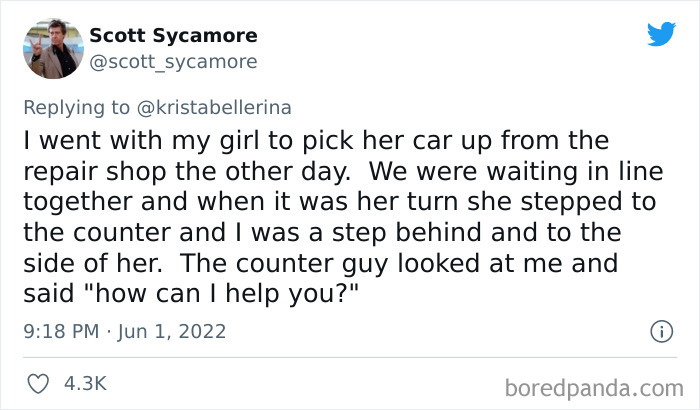While it's easy to think that gender bias against girls and women exists only in classrooms and workplaces ("After all, it's the 21st century!"), in reality, you don't need institutions to find examples of the discrimination they face. It's way more widespread.
Recently, writer, politico, and mom Krista Pacion from Arizona, USA, tweeted about an experience she had with a repairman who started ignoring her the second her husband walked into the room, and it inspired other women to share all the similar situations they've had the displeasure of being in themselves.
The discussion under Pacion's tweet eventually evolved into a thread that serves as the perfect reminder to be the change you want to see. We can all do better, people.
This post may include affiliate links.
We managed to get in touch with Pacion, and the writer said she's very happy about the way her tweet was received.
"I tweeted about an ordinary encounter that resonates with women because it is such a relatable situation, and the comments read like a live action women's studies class, with women sharing specific examples of their own encounters across a wide range of fields," Pacion told Bored Panda.
"The follow-up comments range from those of support that build women up to criticism from people who simply don't see or understand the issue. My biggest takeaway is that women want their stories to be heard, and there is a great opportunity to elevate these powerful and real-world stories through other mediums, like an article, a book, or a podcast."
Pacion believes the large number of replies to her original tweet indicates that gender bias is pervasive. "I think the most blatant forms of gender bias I currently see are with my girls (ages 9 and 13) and what they experience at school, from learning 'pink is a girl color and blue is a boy color' to being admonished to 'sit like a lady' to being told girls can't be spies, not even as a Halloween costume."
"There are far more qualified people who can talk about the areas in which women suffer the most sexism, but an area I see it in a lot is in politics, where coverage for women candidates is often more about what they wear and how they look as opposed to their positions," the writer added.
Interestingly, there's a way we can calculate just how different societies treat men and women. Since 2006, the Global Gender Gap Index has been measuring the extent of gender-based gaps among four key dimensions: economic participation and opportunity, educational attainment, health and survival, and political empowerment. Tracking the progress towards closing these gaps over time, it reports benchmarks and provides country rankings that allow for effective comparisons across and within regional peers. According to its 2020 data, there is still a 31.4% gender gap that remains to be closed globally.
Across the four characteristics, on average, the largest gender disparity lies within political empowerment. Despite being the most improved dimension that year, the gap on this subindex has only been closed by 25%, meaning there are still not enough women occupying seats in government across the world.
However, it's important to note that the political empowerment subindex fails to measure the legal rights of women and girls in comparison to those of men, which plays a significant role in determining the extent to which a society is equal.
"Although progress [has been] made in advancing women’s rights, it has been slow and inconsistent, and many sex-discriminatory laws remain entrenched,” Romina Canessa, a human rights lawyer at Equality Now, told Global Citizen. “When governments deny women and girls the same rights as men and boys, this legitimizes discrimination and abuse, and means they have no formal recourse if their rights are violated.”
The economic and labor market gender gap has been closed by 58%. This is due to the fact that, on average, only 55% of women are participating in the global workforce, and their presence in higher-yielding positions is even lower.
Plus, this disparity is exacerbated by the global wage gap, which affects women across all industries and backgrounds, and has remained relatively stagnant throughout the last five years or so. These components highlight the challenges women face to escape poverty and become financially and economically independent.
I've heard from a moving company guy that was loading my furniture that a pretty girl shouldn't be living alone, creepy and scary...
At least 35 of the 153 surveyed countries have closed the education gender gap by 96.1%. However, this number varies across education levels.
Globally, girls are less likely to receive an education due to gender-based discrimination, child marriage, and the burden of fulfilling domestic chores, all of which prevent young girls and teens from attending school.
While more young girls and women are attending primary and secondary school, less than half are going on to attend college.
Although the global gender gap for health care and survival has been closed by 95.7%, millions of women worldwide still do not have equal access to health care, especially reproductive health care.
Jennifer Weiss-Wolf, vice-president for development at the Brennan Center for Justice, thinks that period poverty and menstrual stigma play significant roles in holding society back from achieving gender equality, noting that these barriers can also hold them back from participating in politics, the workforce, and education.
They let someone without a y chromosome work as a car salesman? So enlightened of them. We all know it's all about the y chromosome.
“If menstruation inhibits anybody from any one of those things, it inhibits them from all four, which places it squarely in the heart of what it means to achieve full gender equality,” Weiss-Wolf explained. “If we don’t have policies in place to ensure a safe and open, and accurate discussion around menstruation, treatment of menstruation, in all of these ways, we are leaving off the table a considerable component.”
In order to achieve gender equality and make all of these pictures a thing of the past, countries across the globe must increase the number of women in government, ensure education is accessible to all women and girls, create free or affordable child care so that more women can participate in the labor market, and provide access to safe reproductive health care.
Had that with a gardener. I always did the gardening in the house, it was my project. Once i became too ill to work i decided to hire a person once or twice a year to give a good trim. Our neighbor was a gardener so i asked him if i could hire his services. He barely listened to my requests and insisted in asking permision of my partner, even after I explained him that my partner did not care, that the garden was mine and i was going to pay him with my money. I didnt fire him in the spot because i didnt want trouble with a neighbor but I should have. He ignored all what i said and did a p**s poor job. Obviously i never called him again. What an a*****e.
Across 34 countries surveyed by Pew Research Center, a median of 94% think it is important for women in their country to have the same rights as men, with 74% saying this is very important.
Men, however, tend to be more optimistic than women about prospects for gender equality, with differences of at least 10 percentage points in 10 countries and smaller but significant differences in 11 others. For example, 77% of men in Japan – compared with 58% of women – say it’s likely that women in their country will eventually attain or already have the same rights as men. Nigeria and the Philippines are the only countries surveyed where a larger share of women than men are optimistic about gender equality.
Krista Pacion thinks that it's not enough to simply want a better future for women. We have to work for it too.
"One of my daughters wants to be president of the United States and my other daughter wants to be an astronaut. It's my job to pave the way for them and other girls and women to achieve their goals," she said. "Whether that's by making a joke about a personal experience on Twitter or by teaching them that colors are colors, I'm operating from a position where I know my personal actions impact their future, and there is always room for improvement."
Obvious the kid didn't know the difference between truck weight and carry capacity.
It bothers me that they enforce consensual sex, where both people have to want the sex, but if having a baby isn't consensual, only the man's opinion matters. My body, my choice.
I would have (not so) kindly said, "I'M the one who's here now, not him. GTFO of my house."
should have lifted it on your shoulders and turned around 180 degrees and 'accidently' knocked them unconcious if you know what i mean 😉 Edit: Spelling and thanks for the Upvotes!!
Same here. My name in italian is man's name.... I'm not living in Italy, but sometimes, when I'm applying for jobs, I get a response with "Herr". Funny, because my name in german is woman's name. It has to be the job: different chef positions... (and no, no salads or sweets :D)
Similar happened to me. Went with a friend who was looking to buy a truck. She knew exactly what she wanted. I was literally just along for the ride. Salesman kept talking to me. I finally just said they were taking to the wrong person and anyways, I only liked pretty red ones which they didn't have so they lost a real and an imaginary sale and we went to another dealership.
The neighbor is the “farm animal” that’s making the noise here, clearly.
It always amazes me when salespeople and business turn down commissions because of stupid s**t like this. Yo a*****e, that’s your paycheck you’re dicking around with, ya f*****g moron.
why are so many of these posts about care sales? is it coiiiiincidence? (to be sung to the tune of the rainbow connection, but im actually wondering.)
So even if you weren't together he would just ignore someone in line before you? Some people...
Note: this post originally had 83 images. It’s been shortened to the top 50 images based on user votes.
I'm from Hungary which is not the leader in equal rights, to put it mildly. Lots of men have ancient ideas in their head about women. BUT they still know it's not 1850 so usually you won't meet blatant examples of this sort of thing in a public/professional setting. So I was used to it that if I go to a shop and ask about cars, heavy tools etc., I'd still get an answer, even if I can see in their eyes they think I won't understand. Then I moved to England and I was shocked by how I was treated as a woman. I lived there for years and could never get over it, the millionth time made my blood boil just as much as the first. In a casual setting men would be really polite, treat me like a lady. But I worked in a shop selling technical equipment with two male colleagues. Every day men and women equally would look straight through me and talk to the men. One of them had WAY less knowledge about our products, but still, he was a MAN!
It might also be a mix of sexism and xenophobia. As a migrant I was treated as a useless idiot by many when i lived abroad.
Load More Replies...Back in the 80s my parents were car buying, my Dad is completely out of touch with his financial position, my Mum is the money person, my Dad knows cars, my Mum is right up there with him, if you want to sell the Johnsons a car then you best talk to my Mum. She walked out of numerous dealerships because she got treated like a wallflower, they all addressed my Dad. Eventually they found a dealership that had a sales team who had their heads screwed on, they bought cars from there for another 40 years, my Mum will not deal with narrow minded fools. Ignore her at your cost, she’s well into her seventies now and as feisty and savvŷ as ever. Why would you ignore 50% of your potential customers? That’s gonna kill your business y’know?
Thank you, for posting and your mom for letting 'em know! :-)
Load More Replies...I'm from Hungary which is not the leader in equal rights, to put it mildly. Lots of men have ancient ideas in their head about women. BUT they still know it's not 1850 so usually you won't meet blatant examples of this sort of thing in a public/professional setting. So I was used to it that if I go to a shop and ask about cars, heavy tools etc., I'd still get an answer, even if I can see in their eyes they think I won't understand. Then I moved to England and I was shocked by how I was treated as a woman. I lived there for years and could never get over it, the millionth time made my blood boil just as much as the first. In a casual setting men would be really polite, treat me like a lady. But I worked in a shop selling technical equipment with two male colleagues. Every day men and women equally would look straight through me and talk to the men. One of them had WAY less knowledge about our products, but still, he was a MAN!
It might also be a mix of sexism and xenophobia. As a migrant I was treated as a useless idiot by many when i lived abroad.
Load More Replies...Back in the 80s my parents were car buying, my Dad is completely out of touch with his financial position, my Mum is the money person, my Dad knows cars, my Mum is right up there with him, if you want to sell the Johnsons a car then you best talk to my Mum. She walked out of numerous dealerships because she got treated like a wallflower, they all addressed my Dad. Eventually they found a dealership that had a sales team who had their heads screwed on, they bought cars from there for another 40 years, my Mum will not deal with narrow minded fools. Ignore her at your cost, she’s well into her seventies now and as feisty and savvŷ as ever. Why would you ignore 50% of your potential customers? That’s gonna kill your business y’know?
Thank you, for posting and your mom for letting 'em know! :-)
Load More Replies...